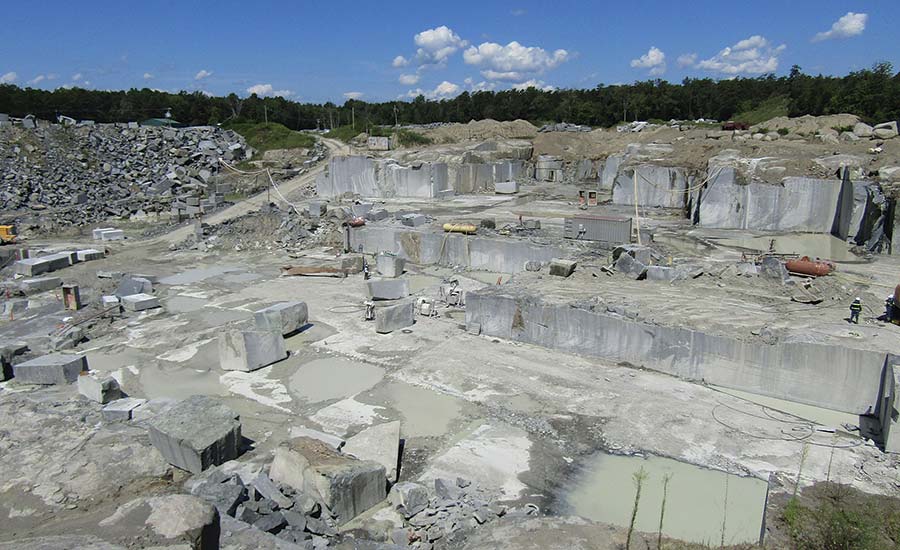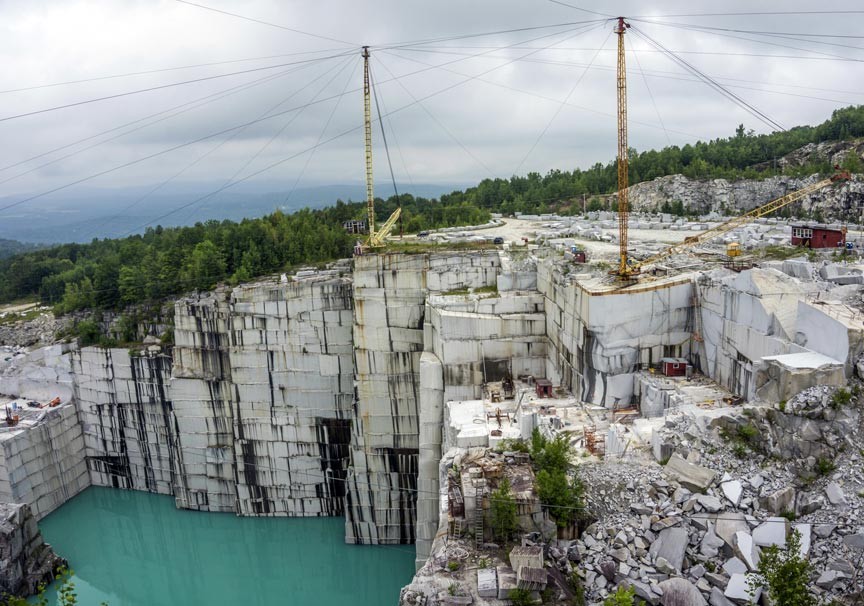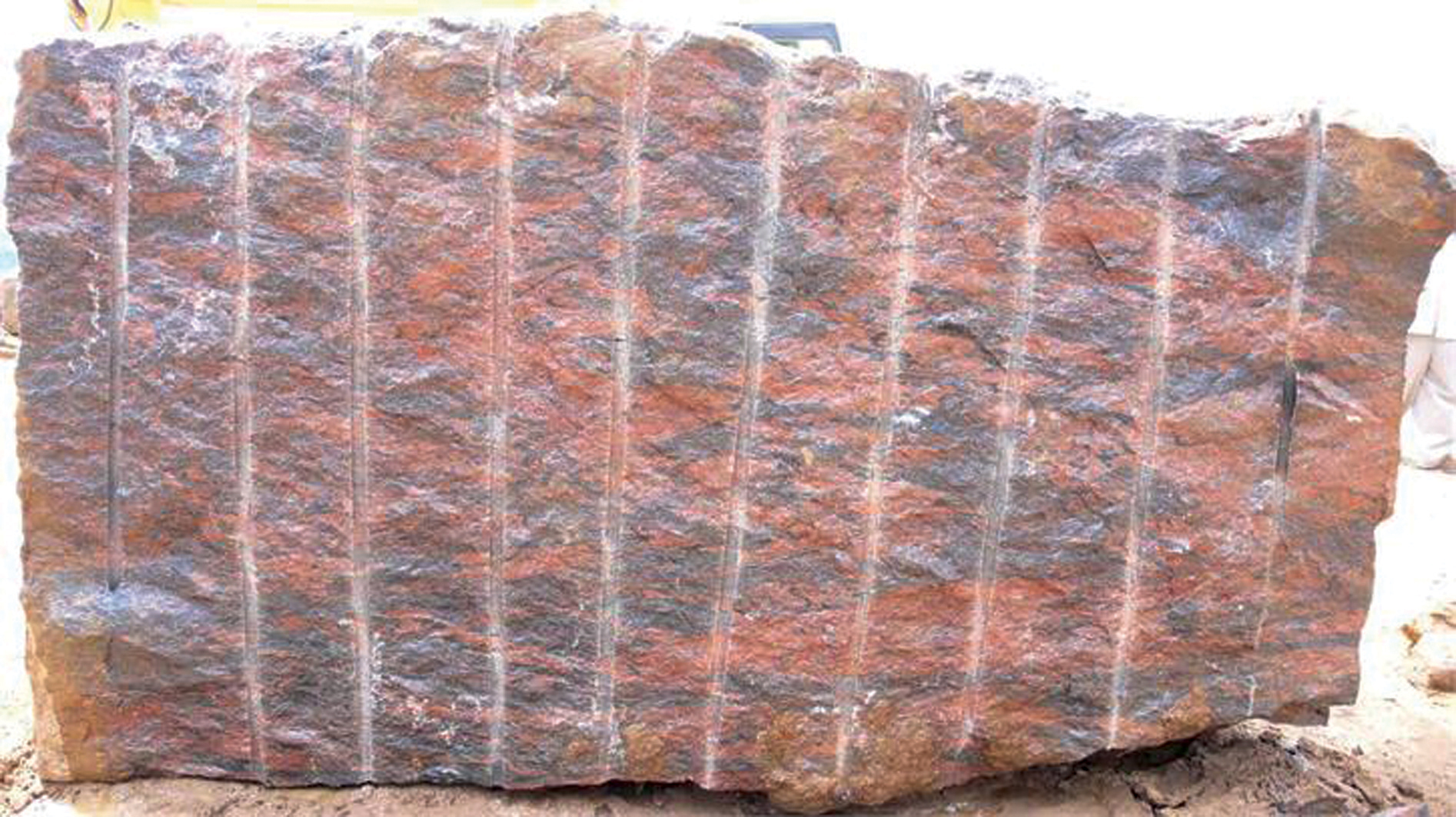Revealing the Mysteries of Granite Quarrying: Where Toughness and Elegance Meet
The world of granite quarrying is a realm where the raw toughness of nature converges with human artistry to produce frameworks that stand the examination of time with an air of elegance. From the depths of quarries to the careful sprucing up in workshops, the procedure of transforming granite into architectural marvels is a complex dance of custom and technology. As we peer right into the depths of this ancient craft, we begin to discover the concealed details that form the really essence of our built environment.
The Origins of Granite Quarrying
In the annals of architectural history, the origins of granite quarrying are shrouded in a tapestry of ancient craftsmanship and geological marvels. Dating back to ancient Egypt and Mesopotamia, the extraction of granite from quarries marked the beginning of a journey that would eventually result in the development of a few of the world's most renowned structures.
Granite quarrying's roots can be traced to the experienced artisans who recognized the rock's durability and aesthetic allure. Via a mix of primitive devices and sheer decision, these early quarry workers unearthed granite blocks that would certainly come to be the structure blocks of people.
As people advanced, so did the strategies of quarrying granite. The Romans, renowned for their design prowess, developed advanced approaches for removing granite to build monuments, temples, and roadways that stood the examination of time.
The legacy of these ancient quarrying techniques remains to shape modern-day style, with granite staying a symbol of strength and style in building projects around the world. (granite quarries in south africa)
Devices of the Quarrying Trade
The advancement of granite quarrying methods from ancient human beings to contemporary times highlights the crucial role played by the devices of the quarrying trade in forming the market's techniques. In old times, quarrying tools were primary, commonly including knives, hammers, and wedges made from materials like bronze or iron. These devices needed substantial manpower and time to extract granite blocks from quarries.

Additionally, the introduction of pneumatic tools and high-powered equipment has actually significantly reduced the physical labor required in quarrying procedures, boosting employee safety and security and performance. As the quarrying market continues to innovate, the tools of the trade continue to be at the center of driving progression and forming the future of granite extraction.
Extracting Blocks of Granite
Using accuracy equipment and advanced strategies, the extraction of granite obstructs from quarries has come to be an advanced process in the modern-day quarrying industry. Regulated blasting strategies are then used to break apart the granite advice right into workable areas.

Polishing and Finishing Strategies
To achieve a remarkable surface on granite blocks, proficient craftsmens utilize a collection of meticulous polishing and ending up techniques. After the preliminary removal and shaping processes, the granite obstructs undertake an extensive sprucing up phase to enhance their all-natural elegance and resilience.
Along with sprucing up, finishing methods are put on more refine the granite's appearance. These methods might consist of flaming, honing, or brushing, each offering special appearances and finishes to suit different visual choices. Flaming, for example, involves exposing the granite surface to high temperature levels to develop a harsh, distinctive coating, ideal for outdoor applications where slip-resistance is vital. Refining, on the various other hand, gives a matte coating that is smooth to the touch, perfect for indoor countertops and flooring. By thoroughly selecting and applying these polishing and finishing techniques, artisans can transform raw granite blocks into exquisite you can try here pieces that display both toughness and elegance.

Ecological Effect and Sustainability
With the expanding emphasis on ecological consciousness in the market, granite quarrying practices are progressively scrutinized for their effect on all-natural resources and lasting sustainability. Quarrying for granite can have significant ecological effects. The extraction procedure frequently includes making use of heavy equipment, nitroglycerins, and big quantities of water, leading to habitat devastation, dirt erosion, and water contamination. In addition, the transportation of granite from quarries to processing centers creates carbon emissions, additionally adding to environmental deterioration. granite quarries in south africa.
To reduce these impacts and make certain sustainability in granite quarrying, market stakeholders are adopting various steps. Carrying out sophisticated innovations to minimize power intake and water use, redeeming quarried land for eco-friendly reconstruction, and advertising liable sourcing techniques are some approaches being used. Furthermore, certifications such as the Forest Stewardship Council (FSC) and the Management in Power and Environmental Layout (LEED) assistance customers determine ecologically friendly granite products.
Final Thought
In conclusion, granite quarrying is a procedure that needs specialized tools and strategies to extract blocks of granite and brighten them to a high level of finish. While the ecological effect of quarrying can be substantial, efforts are being made to boost sustainability methods in the industry. Generally, granite quarrying is a delicate equilibrium between using the stamina and style of this natural rock while lessening its influence on the atmosphere.
Comments on “Discovering the Beauty of Granite Quarry in South Africa Wonders”